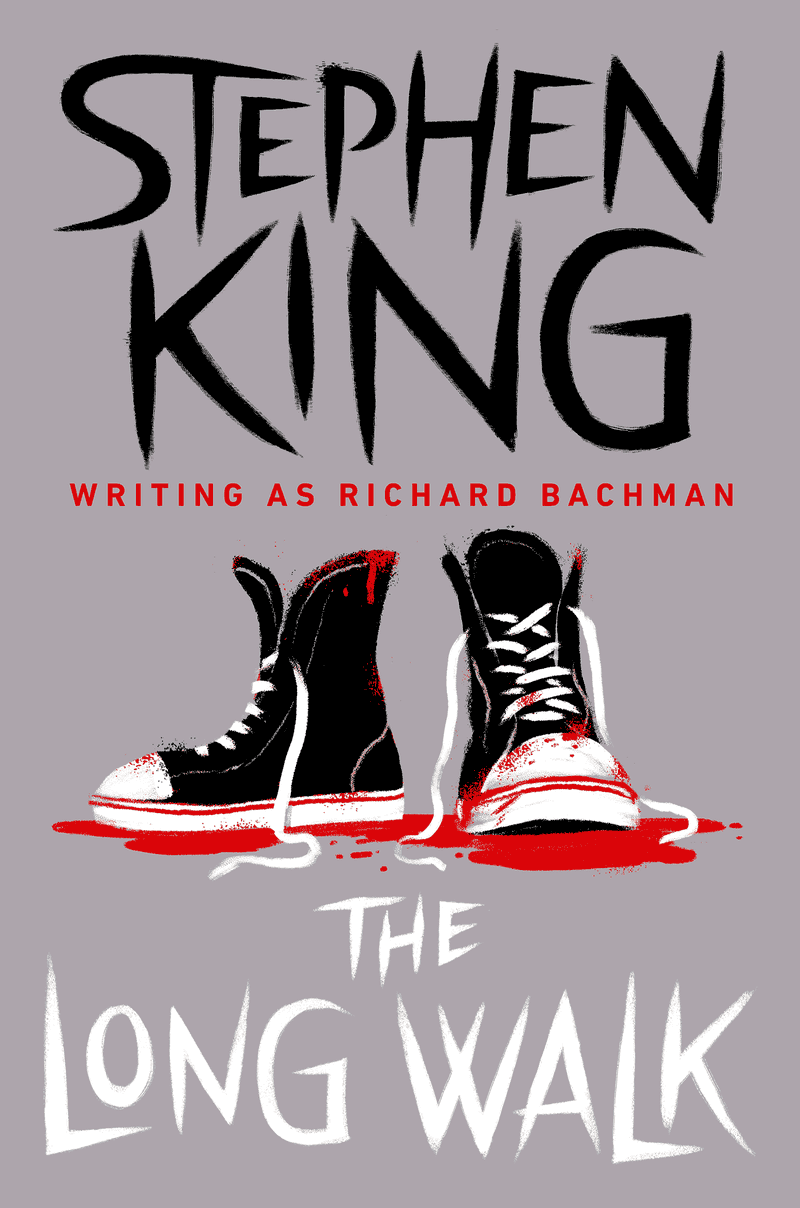 The Long Walk
The Long Walkby Stephen King
reviewed by Ana Cristina Bailey
In Stephen King’s literary fiction novel, The Long Walk, he illustrates a gruesome narrative of one hundred boys under the age of eighteen who walk until all except one perishes. The boys, who gain the insight of young men during the “Long Walk,” must walk at a constant speed of four miles per hour. If the boys do not continually walk at this speed, the soldiers warn them with the feared phrase, “Warning! Warning.” Three warnings result in a “ticket,” a euphemism for death. After receiving a ticket, the ruthless soldiers shoot the “Walker” who fails to meet the required pace. However, if a “Walker” manages to walk at four miles per hour after being warned, his warning is revoked. Although it seems inconceivable that the young men would voluntarily participate in the “Long Walk,” the reader learns that the boys compete in this horrid event for “The Prize”-anything the boy’s heart desires. Through King’s use of similes and metaphors, the reader cannot help but agonize over the plight of these young men as they walk to their death. King’s narration of the walkers’ changing attitudes during this competition urges the reader to ponder how he or she would act in this situation.
The protagonist in the novel, Ray Garraty, has the life of a stereotypical American teenage boy: a beautiful girlfriend, decent grades, and an overall seemingly carefree life. Despite this, Garraty still risks his life for the highly sought-after “Prize.” While using descriptive imagery and comparing Garraty’s lighthearted life to the torturous competition in which he partakes, King instills the reader with a belief that taking risks is not always the most sensible idea. However, Garraty is assuredly not the only young boy who jeopardizes his life in hopes of winning the “Prize.” Although Garraty does not initially intend to make friends throughout his arduous walk, he is acquainted with Peter McVries, Hank Olson, Stebbins, Arthur Baker, and Gary Barkovitch. Though Garraty is reluctant to become friends with his competition, he ultimately realizes that he needs a group of people with whom he can talk in order to stay sane. King’s vivid descriptions of the heartbreaking stories of these young boys compels Garraty to almost pity them; however, Garraty knows he must keep walking and show no remorse in the event of their death. Garraty and McVries particularly become close companions, for they save each other from receiving a ticket on numerous occasions. This large group of boys, who call themselves “The Musketeers,” not only discuss abstruse topics, but they also converse about everyday things that help them maintain their sanity.
Throughout the entirety of the novel, I found myself pondering if the advantages of being a winner outweigh the cost of being so. Stephen King does a phenomenal job of inspiring discussion for the reader and leaving the reader to ponder the major themes of his novel after reading it. His blunt writing style enables the reader to feel connected to the characters because of its similarity to a conversation with the characters. Through similes and hyperboles, King compares the “Long Walk” to other things that appear to be of great exaggeration; however, the reader is able to determine that the “Long Walk” is truly as ghastly as it seems. King leaves the reader with a lasting idea that the horror is not in death itself, but in watching the mental and physical state of someone deteriorate.
I would recommend this novel to people who are keen to delve deeper into the mind of a sixteen-year-old boy. King uses literary devices to portray Garraty as a “wild animal,” which can often be an accurate representation of a teenage boy. Although King describes Garraty extremely well, he uses profane language and introduces other inappropriate topics. Moreover, the novel can be repetitive, for it solely consists of the death and survival of the “Walkers”; I would recommend The Long Walk to those who prefer a more straightforward plot. King’s use of suspense and foreshadowing appeals to people who revel in cliffhangers. Because King is typically a writer of horror fiction novels, The Long Walk contains content that can make the reader feel petrified; I would not encourage those who are easily frightened to read this novel. In sum, I would recommend this novel to people who are eager to learn about the physical and emotional struggles of these one hundred boys as they walk for their survival.
No comments:
Post a Comment